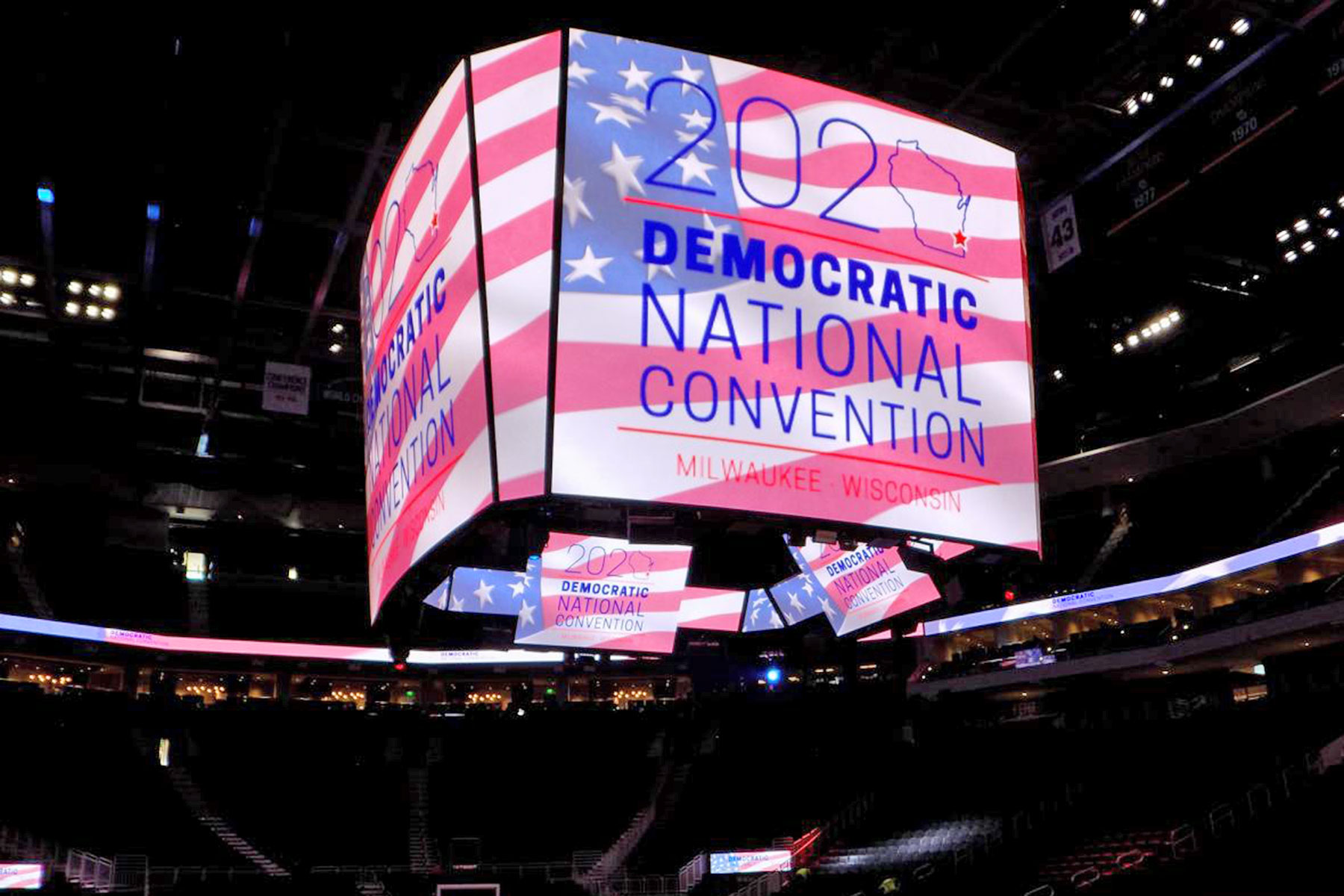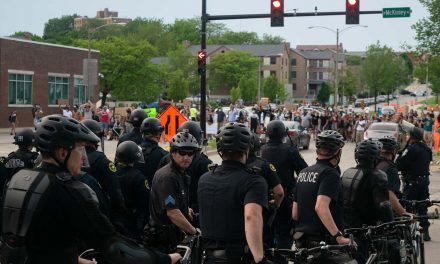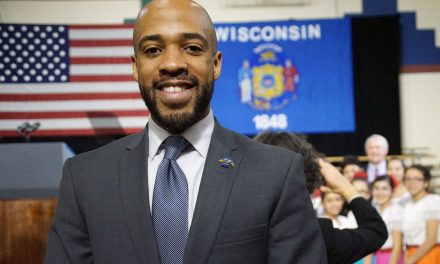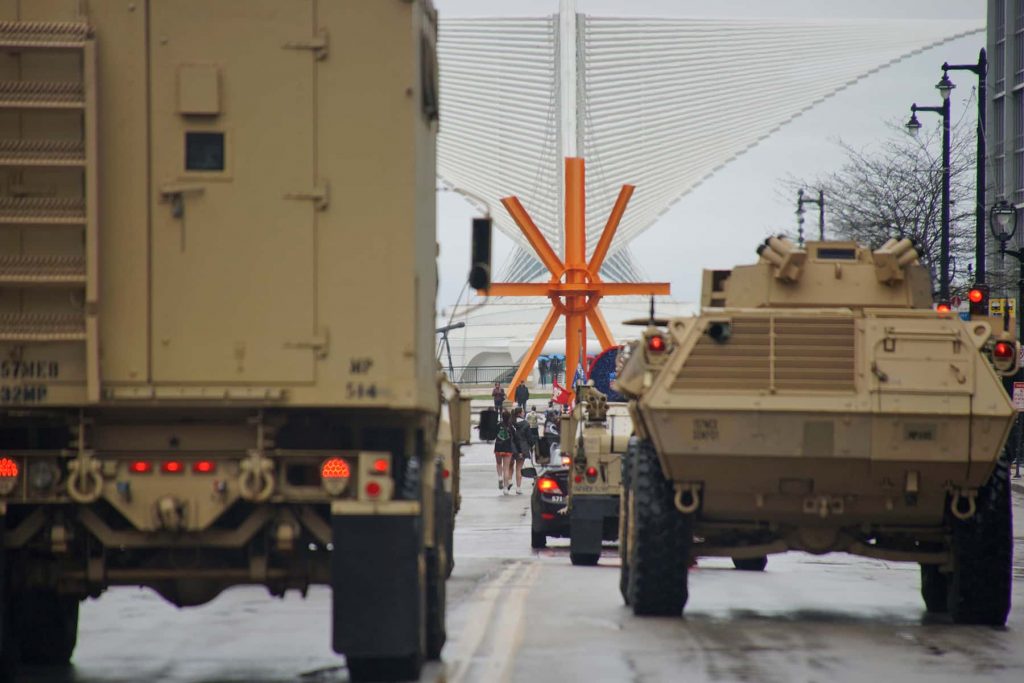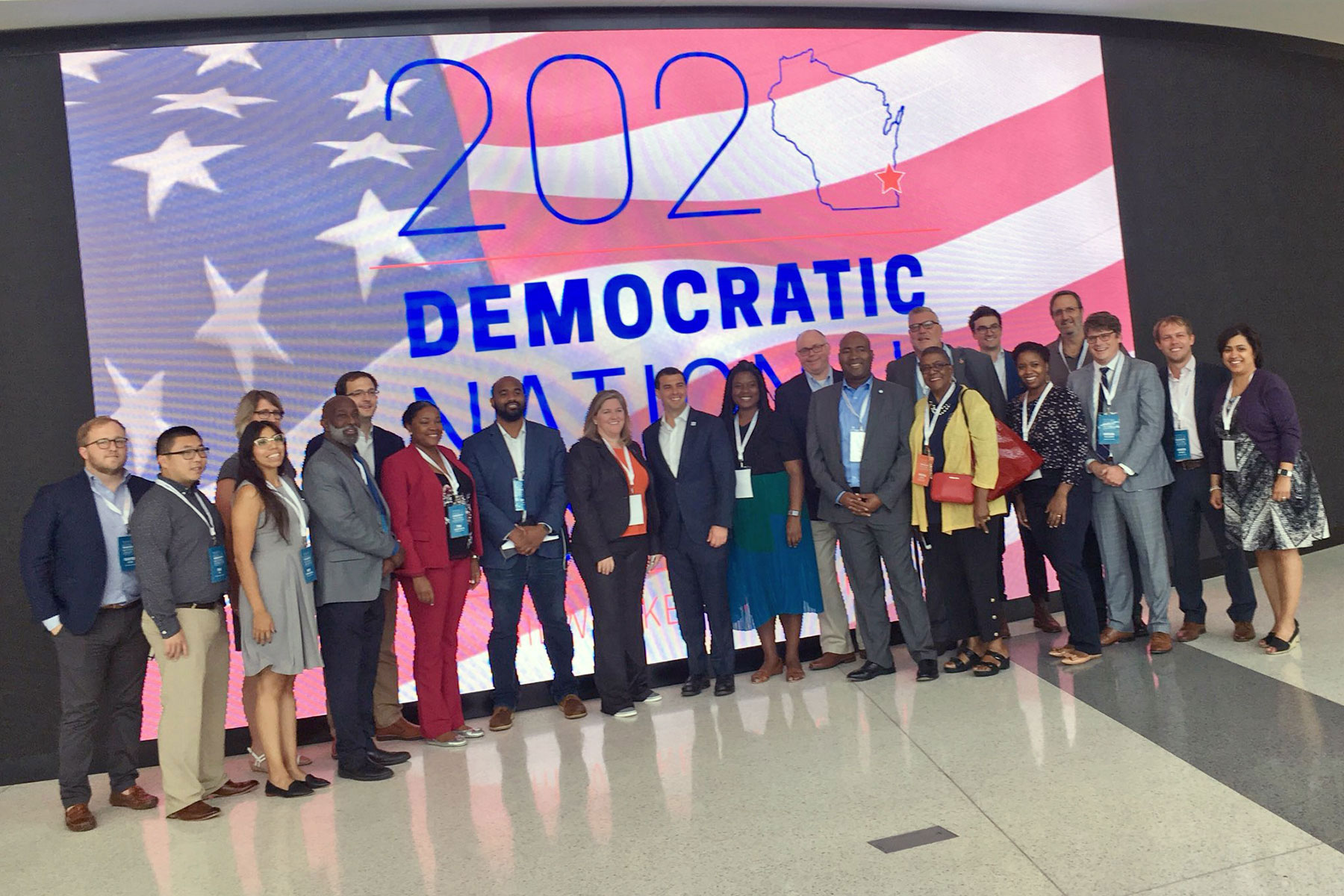
As Milwaukee competes with Houston and Miami in bids to host the 2020 Democratic National Convention, the city’s ability to accommodate roughly 50,000 attendees will be examined by the search committee this week.
Nearly all of the members of the DNC’s search committee for the 2020 convention are doing a site visit in Milwaukee this week where they’ll explore the city, its venues and meet with both community and business leaders. Wisconsin’s “purple state” status is also a factor, according to the head of the search committee.
Milwaukee Mayor Tom Barrett joined search committee members Tuesday at the new Milwaukee Bucks arena where he cited politics as the first reason the city is the best choice for the 2020 convention.
“If you look at the 2016 election, the Midwest — Wisconsin in particular — was a place where this election could have been won or could have been lost,” he said. “A few thousand votes here, a few thousand votes in Michigan and a few thousand votes in Pennsylvania and there would have been a different outcome to the 2016 election.”
Jess O’Connell, selection director for the DNC’s technical advisory group, said the committee looks at several variables in choosing a host city.
“Things like housing and transportation, security, accessibility, arena and production logistics,” all go into the committees’ decision, O’Connell said.
She added the state’s politics are also in play.
“I think having something like the Democratic National Convention here for this next round of presidential elections would feel very good to folks here,” O’Connell said.
Alex Lasry, chair of the Milwaukee 2020 DNC Convention Bid Committee and senior vice president of the Milwaukee Bucks, pointed to the development of the NBA team’s new arena as a symbol of a budding downtown.
The new arena — called the Fiserv Forum — opened on August 26 and has been one of the centerpieces of the DNC bid as a state-of-the-art venue.
“I think Milwaukee coming out of the Great Recession has really started to now look like — and through the mayor’s leadership — a 21st century city and it’s starting to pivot into that,” Lasry said. “You can see the development happening all around here, the 30 acres that are happening in this district is really starting to revitalize west of the river.”
Also touted by Barrett, Lasry and U.S. Congresswoman Gwen Moore, D-Milwaukee, is the city’s diversity and downtown Milwaukee’s proximity to restaurants.
Supporters of the bid champion the economic boost they say a convention can bring to the host city.
In the past, officials like Moore have pointed to the $230 million Philadelphia — the 2016 DNC host city — brought in through the roughly 50,000 visitors the convention drew.
But some experts have been skeptical of the numbers cities cite when discussing the economic benefits of these conventions, warning of overstating indirect spending.
Host cities have to fundraise in order to lobby the search committee to bring the convention to their home state; and if their bid is chosen, another great deal of fundraising is required to put the convention together.
O’Connell said the budget for a convention varies by city and venue.
“But putting on a world-class event is expensive, and it will be in the tens-of-millions-of dollars that need to be raised by the host committee,” she said, adding that the DNC also raises funds to run the convention.
O’Connell said a decision on the next host city can be expected late this year or early next year.
Ximena Conde
Wisconsin Public Radio
Originally published on Wisconsin Public Radio as ‘Purple State’ Status A Factor In Milwaukee’s 2020 Democratic National Convention Bid

